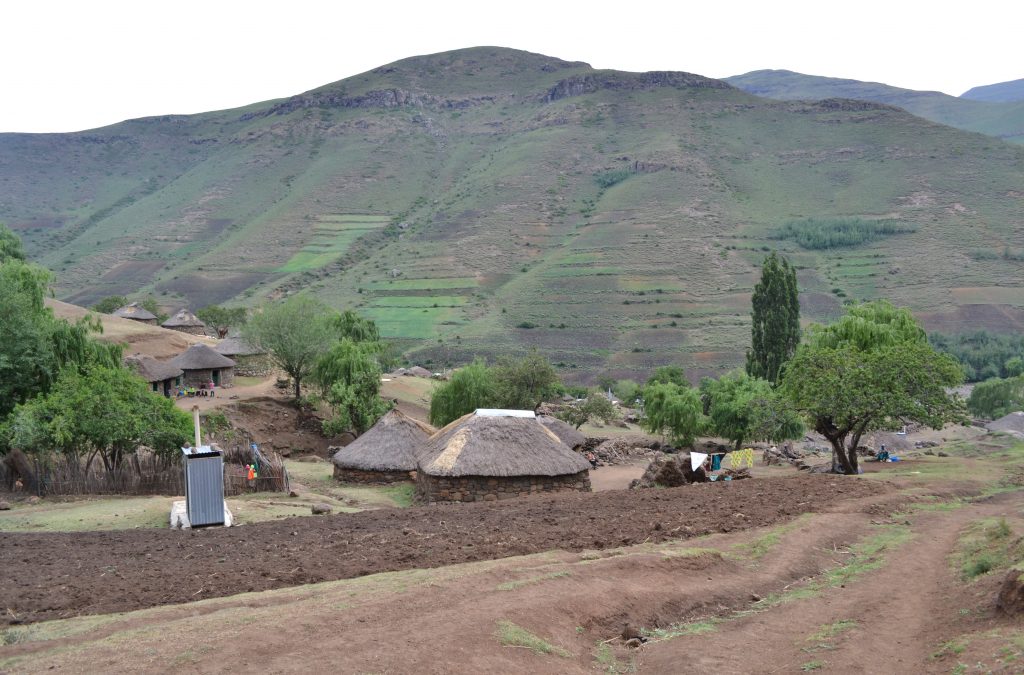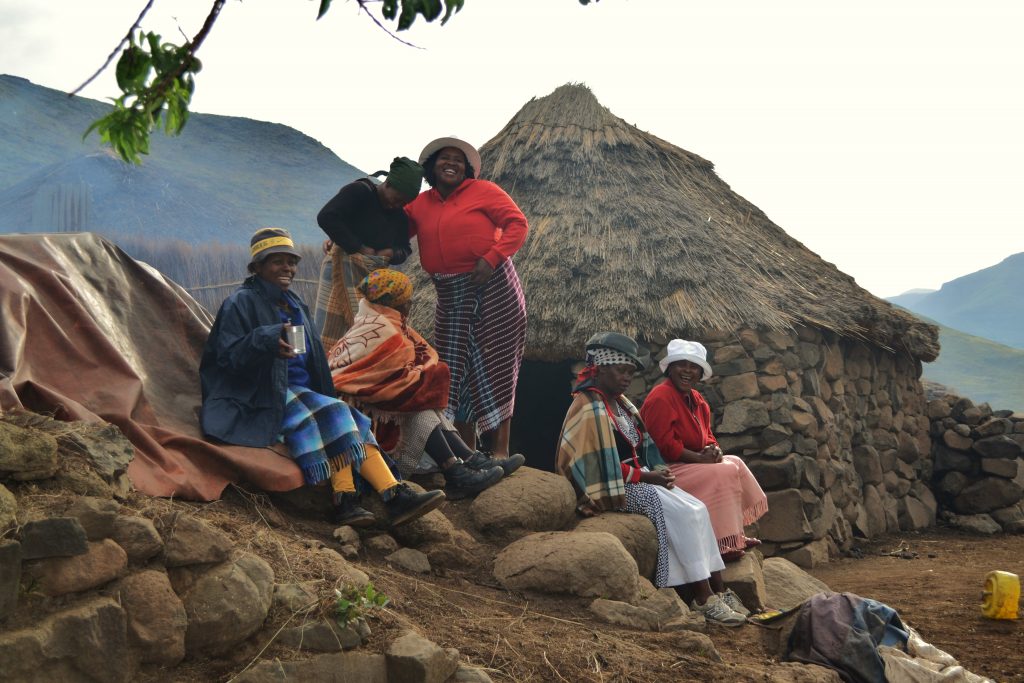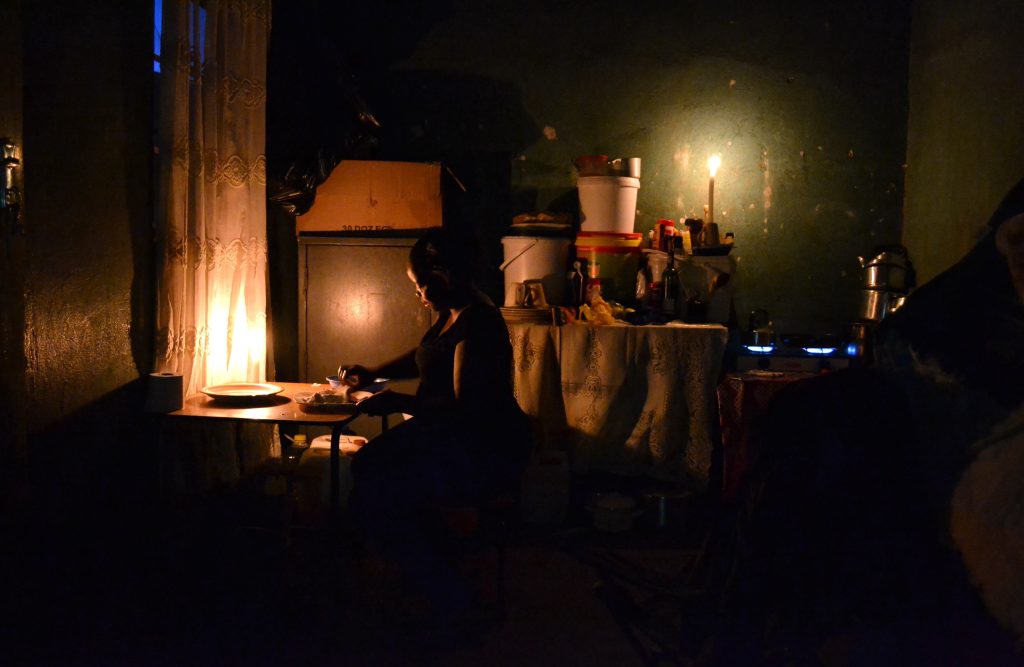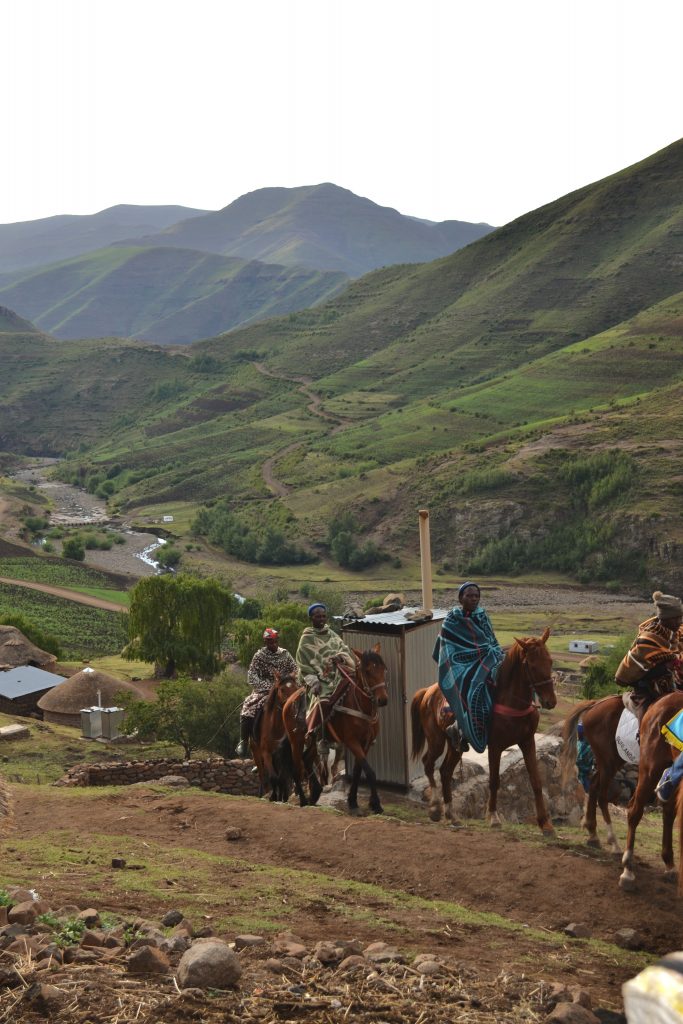A Day in the Life of a Fulbright Scholar: Mary Beth Bird
As the NSO begins recruiting candidates for next year’s Fulbright Award cycle, we will be highlighting the five VCU students currently studying and working across the globe with the support of their Fulbright grant. These will feature a sample “Day in the Life”, to celebrate the endless opportunities a Fulbright grant can provide!
This week, we’re showcasing Mary Beth Bird (VCU ’10) of Lexington, Virginia, who is presently conducting anthropological research in Lesotho to examine maternity experiences. Mary Beth is in collaboration with the National University of Lesotho and the Botha-Bothe District Health Management Team.
| Name | Mary Beth Bird |
| Country | Lesotho |
| How I spend my mornings | My research assistant, Ts’episo, and I typically get up around 4:30 or 5am and head straight to the water pump. Water is scarce this time of year in my village, Motete; collecting enough drinking water is a daily priority. The water tap is halfway up the steep mountainside, in the center of village. In the mornings, it is crowded with bo-‘Mme (women) huddled around, wrapped in thick likobo (blankets), chatting and patiently waiting for their turn in line. This is where my fieldwork and community integration begins every morning. After hauling a bucket home, Ts’episo and I typically eat a light breakfast of homemade steam bread and tea. We bathe in plastic buckets with water gathered from the river and heated in a black iron cauldron outside. By this time, my host family’s compound is normally bustling with activity: the little boys herd the sheep and cattle up the mountain to graze, my host mother, ‘Mme Mamasupha cooks motoho (maize meal porridge) for the little kids, and Ntate moholo (grandfather) lights his rickety, hand-carved pipe. Ts’episo and I finish our house chores (sweeping, rolling up our sleeping blankets/mats, washing dishes) as soon as possible, gather our packs, and head into the community.
I try to spend my mornings with the women in the community. I stop by ‘Mme Amelia’s compound to “coo” over her new grandbaby. Ts’episo and I sit for several hours… This morning she teaches me how to make joala ts’a Basotho (traditional Basotho beer) while she tells me about how she met and married her husband. I take jottings down in my field journal and snap an occasional photo as Ts’episo translates. We make several visits like this throughout the morning. Some are scheduled visits/informal ethnographic interviews with midwives or mothers; others are impromptu, as we bump into villagers and neighbors around the community. After several hours, I have a journal full of half-scribbled notes and new vocabulary words, and a head full of details that need to be committed to paper. |
| How I spend my afternoons | In the heat of summer (November through February), afternoons are a time for rest in Motete. Ts’episo and I head home. While she makes tuna salad or a boiled egg with bread for lunch, I begin writing. I typically spend about 2 hours writing field-notes for every 1 hour of exposure in the community. I try to record every sensory detail of what I’ve seen, heard, smelt, and touched that morning. I pepper Ts’episo with questions as I write: “What did this mean?” “Do you remember what he said?” “What is that called again?” On light days, I may spend several hours reading or spend a few hours studying Sesotho with Ts’episo. In the late afternoon, around 5pm, my host mother, ‘Mme Mamasupha grabs a plastic bucket and stops by my rondaval (traditional Basotho home) to take me with her to the field. We join the other women picking morroho (wild spinach). Lazily we move up and down the mountainside, bent over at the waist picking. They teach me the plants that are safe to eat, and the ones that can cure a stomach ache or help a woman in pre-term labor. They quiz me in Sesotho and laugh at my shocking lack of knowledge. We don’t leave the fields until the sun begins to dip below the mountains that surround us in every direction. This is my favorite time of day in the village. |
| How I spend my evenings | Evenings are family time. At home, I help ‘Mme Mamasupha cook dinner: papa (boiled maize meal) with morroho (spinach). We eat out of shared bowls, with our hands. Ts’episo and I typically sit around by candlelight reviewing the day and making a plan for tomorrow. We wash dishes, and unroll our bed mats in the center of our rondaval. We rise and sleep with the sun. |
| What I do in my free time | I spend a lot of time with my host family, playing games with the kids or cooking. I read a lot when I am in village, and enjoy photography. |
| My go-to meals | Options are very limited in Motete, but when I’m in a pinch, a slice of homemade steam bread with peanut butter always tastes like home. J I also love mashed potatoes and scrambled eggs for dinner! So much so, that Ts’episo frequently gets sick of them! Ha! |
Who do I interact with every day?
My research assistant/translator, Ts’episo, is often by my side. I also spend a considerable amount of time with my host family. However, every single day brings new people: villagers, family members, women, midwives, elders, nurses at the local clinic, miners from the local diamond mines, NGO workers from the capitol city, Maseru.
What am I seeing, hearing, smelling, tasting every day?
My village is surrounded by mountains on all sides. When I walk outside, first thing in the morning, the light is barely creeping over the ridgeline and the air is crisp and bitter-cold. I’m standing on the solid, swept dirt of our family compound, but not 3 meters in front of me is a steep drop-off. The village teeters on the edge of a mountain; we are surrounded by other families, above and below us, connected by winding dirt paths and rocky ledges. The view is beautiful, and occasionally heart-stopping. I hear cattle-bells clanging in the distance, a rooster crows, and ‘Mme Mamasupha’s kids begin to stir inside. I smell wood fires burning in every direction, in front of every home. This remote Basotho village, deep in the heart of the Maluti Mountains, is a challenging, beautiful, and rewarding place to live.
May 2016 Update from Mary Beth:
The past 8 months have been a whirlwind of adventure and difficult lessons learned. Despite my intimate prior knowledge of the country, I spent my first 5 months in Lesotho struggling to obtain a coveted government health research clearance from the Ministry of Health and Social Welfare. Beginning in December, after months of logistical planning, I finally moved (part-time) to the remote community of Motete, deep in the Maluti Mountains. My research assistant, Thabang, and I were able to record the personal birth and medical narratives of 18 Basotho mothers. We also gathered vital ethnographic and historical data on traditional Basotho medical practices from countless village elders, ngaka ea Sesotho (traditional Basotho medical practitioners), local herbalists, village midwives, and Community Health Workers (village outreach workers from the local government clinic). It was thrilling. The things we learned often left me sleepless with excitement (although, my sleeplessness might have also been punctuated by the hard dirt floor, rats, bed-bugs, and fierce cold! Ha!) Experiencing the daily reality of fieldwork – grappling with the intense logistical challenges, forging multi-faceted relationships with the women, and beginning to understand and own my new identity as a researcher – has been thrilling… Invaluable. It brought anthropology to life for me.
In August, I will be joining the eight-year, fully-funded MD-PhD Program at Rutgers University. I will spend the next two years completing the pre-clinical training for my MD at Robert Wood Johnson Medical School, prior to beginning my PhD in Anthropology in 2018. My future PhD supervisor, Dr. Dorothy Hodgson, and I hope to begin working towards my first publication immediately, utilizing some of the ethnographic data I collected in Lesotho over the past nine months.
I can’t possibly thank VCU, the National Scholarship Office, and the Fulbright Advisory Committee enough for their constant support throughout the application process and my grant term. Watching my intellectual vision come to life this year – an idea which began in my own mind, and then on the page – has been one of the most rewarding experiences of my academic career. Thank you for helping me make it possible!



